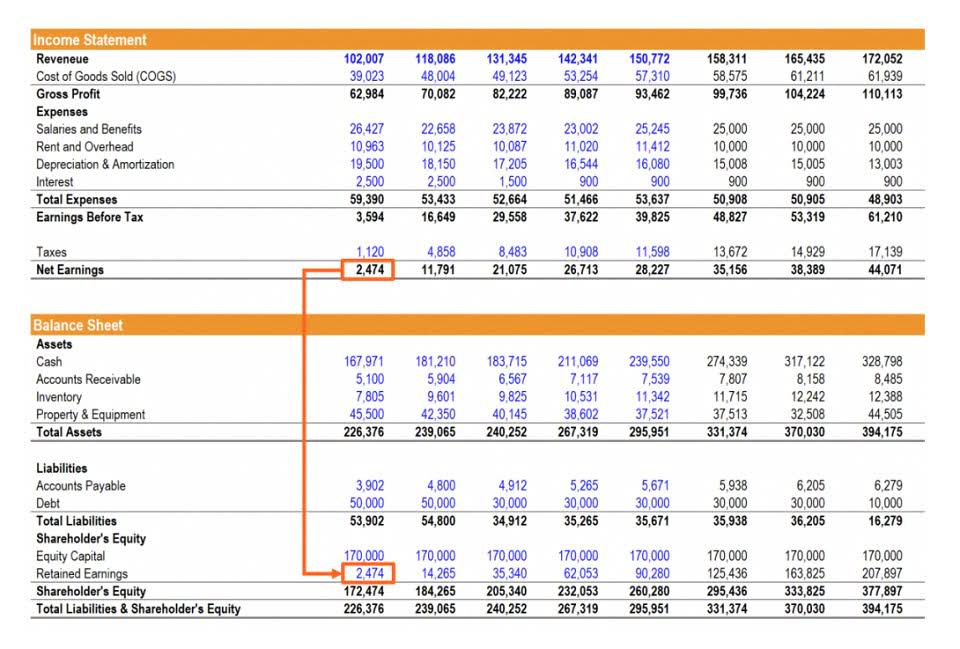
The Certified Public Accountants Association (CPAA) is the official membership organisation for UK-based practising accountants. Accounts payable (AP) and accounts receivable (AR) are two fundamental account types in accounting, particularly in the double-entry bookkeeping system, that handle company transactions. While bookkeepers maintain data, accountants review and analyze the data for business insights and guidance.

Following accounting standards
- Accounting is the process of keeping track of all financial transactions within a business, such as any money coming in and money going out.
- In conclusion, accounting software is an essential tool for businesses of all sizes.
- By analyzing these three components of the balance sheet, one can determine a company’s financial position.
- In addition to this financial overview, proper accounting practices prepare your business to file taxes and produce financial statements needed for potential investors or business loan applications.
- In this post, we’ll cover the basics of accounting, from budgets to other accounting functions.
When running a small business, you should choose an accounting software product and consider hiring an accountant. Accounting software does a lot of the heavy lifting (such as keeping track of debits and credits) for you. However, it’s still important to understand basic accounting principles to know what’s happening behind the scenes. Business owners should be able to enter transactions, reconcile accounts and interpret financial statements accurately. Accounting services ensure compliance with legal and regulatory requirements.
Types of Business Expenses
- GAAP are a set of rules and guidelines that companies must follow when preparing their financial statements.
- As a business owner, you must understand your organization’s assets, inventory and liabilities.
- These principles ensure that financial statements are accurate, reliable, and consistent.
- Credit accounting can be one of the most difficult kinds of accounting to do well, in part because it’s a difficult subject to be critical about.
- Still, even after learning what an accountant does, you might still wonder what accounting is at its core.
- The Internal Revenue Service (IRS) requires businesses to maintain accurate financial records in order to calculate and pay taxes.
Banks, lenders, and investors may wish for a business to follow these standards to provide capital. Accounting is the process of recording, summarizing, and analyzing a business’s financial transactions. At its core, equity tells the story of ownership, profitability, and long-term stability. Because equity is constantly moving, you must track these movements consistently across all your clients. Inaccurate or delayed updates can lead to misinformed decisions and unnecessary backtracking. To streamline this process and reduce the risk of QuickBooks missed steps, consider using an accounting practice management solution like Financial Cents.
Accounting: Objectives, Characteristics, Advantages, Disadvantages and Role of Accounting
- In fact, 35% of contractors said the most stressful part of doing accounts is worrying about making mistakes.
- This would reduce confusion and streamline financial reporting for multinational companies.
- To help support our reporting work, and to continue our ability to provide this content for free to our readers, we receive payment from the companies that advertise on the Forbes Advisor site.
- By maintaining organized and accurate financial information, organizations can effectively manage their tax obligations and minimize the risk of penalties or audits.
- Ultimately, shareholders’ equity gives a clearer picture of a company’s long-term value, financial discipline, and ability to return value to investors.
- By keeping track of these transactions, small business owners can get a clear picture of their financial health and make informed decisions about the future of their business.
- Even though the charges relate to services incurred in July, the cash method of financial accounting requires expenses to be recorded when they are paid, not when they occur.
When you file income tax returns, accounting information helps determine your taxes payable. Accounting, then, is a measurement and communication process used to report on the activities of profit-seeking business organizations. As a measurement and communication process for business, accounting supplies information that permits informed judgments and decisions by users https://www.bookstime.com/ of the data.
- The amounts, figures, and other data in the financial reports have meanings that are useful to the users.
- To accurately calculate tax liabilities, accountants must understand the complex tax code and regulations.
- The accounting standards are important because they allow all stakeholders and shareholders to easily understand and interpret the reported financial statements from year to year.
- By using these tools, small business owners can save time and reduce the risk of errors.
- Bureau of Labor Statistics, the average hourly rate for an accountant is $37.

This type of accounting tracks, records, and analyzes the various costs related to your company’s products or services. Cost accounting aims to advise management on ways to accounting definition in business streamline costs and provide insights into financial strategy. Accounting is how individuals and organizations, including small businesses, track finances. They may hire a certified public accountant (CPA) to calculate and submit their personal taxes. At its core, accounting is a money-management process that tracks and records expenses. Accountants analyze the flow of cash through your business to improve operations.

To help maintain these ethical standards, many accounting organizations and regulatory bodies have established ethical guidelines and codes of conduct that their members must abide by. For example, the American Institute of Certified Public Accountants (AICPA) provides their members with a Code of Professional Conduct. These reports enable managers to identify areas where resources might be allocated more efficiently and effectively, thus improving overall business performance.

Leave A Comment